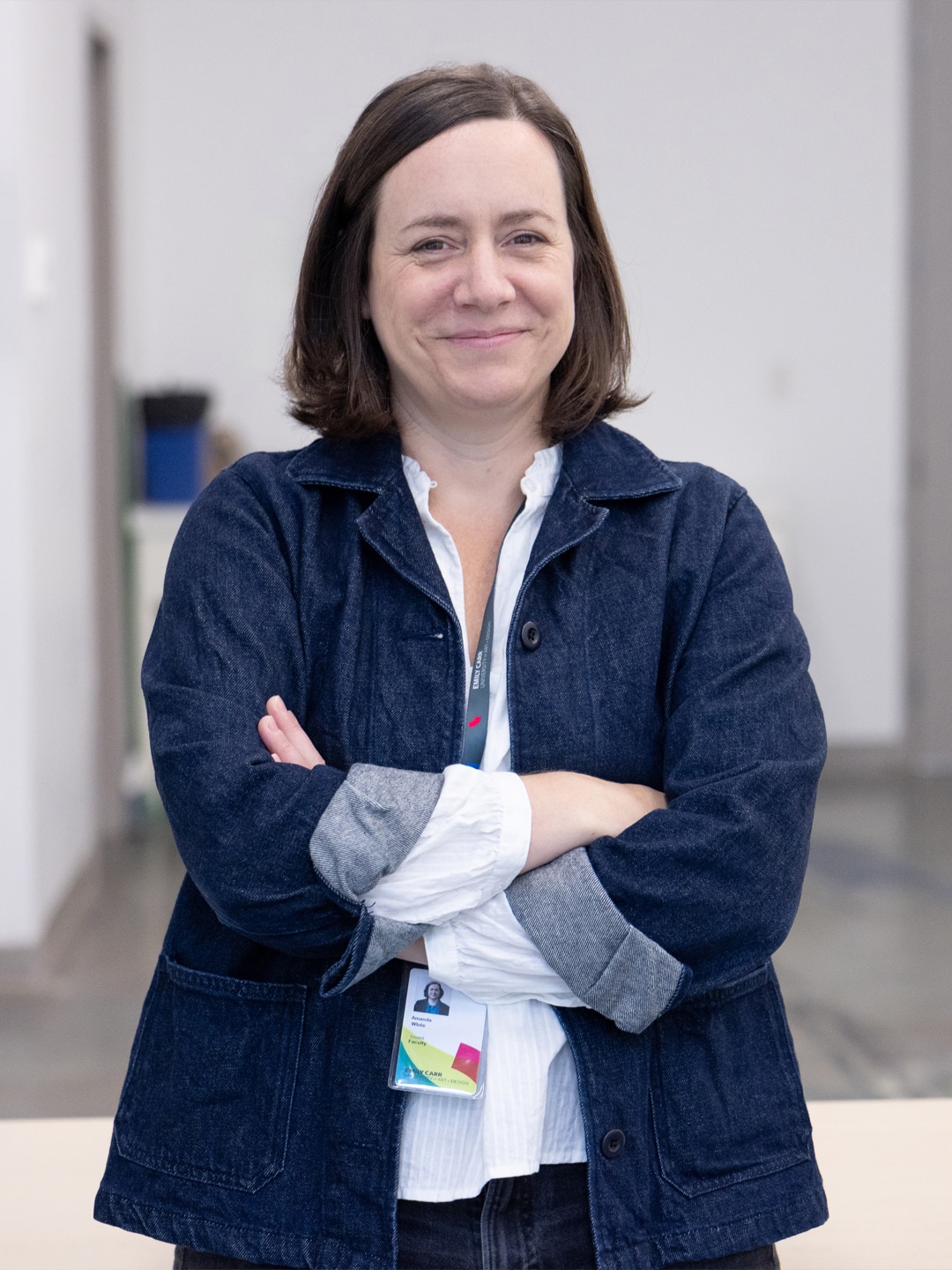The award, valued at over $500,000, will see the artist and researcher establish a hub at the university for interdisciplinary and collaborative research-creation engaging with environmentally focused practices.
Emily Carr University of Art + Design (ECU) is pleased to announce the appointment of Dr. Amanda White as Tier 2 Canada Research Chair (CRC) in Sustainability, Ecological Justice, and Climate Action in Creative Practices.
The award brings $600,000 over five years to the university as part of the Government of Canada’s CRC Program. Amanda’s research program will explore how research-creation can support sustainability and ecological justice and inspire cultural and environmental change.
“Creative practices contribute in meaningful ways to imagining the sustainable transformations and futures that climate change and other anthropogenic pressures on earth’s ecosystems urgently require,” she says. “I am thrilled to be joining the community at ECU, and to work alongside others on these important topics over the coming years.”
The CRC Program invests up to $311 million annually to attract and retain some of the world’s most promising and accomplished researchers. The program aims to advance research that leads to groundbreaking discoveries and innovations across health, engineering, sciences, social sciences and humanities.
Amanda is an artist and researcher whose creative work and interdisciplinary collaborations engage with ecological systems, climate change, and human-nature relationships. Her creative practice and research include studio-based work as well as curatorial and publication projects with a focus on plants, food justice and environmentally engaged arts.
As part of her work at ECU, Amanda is currently in the process of establishing a hub for interdisciplinary and collaborative research-creation. With generous support from the Canada Foundation for Innovation’s John R. Evans Leaders Fund (JELF), the hub will support the development and mobilization of knowledge around art practices that address sustainability; advance ecological justice and related knowledge with a focus on research-creation and material experimentation with plants; and build interdisciplinary collaborations to support climate action and environmental justice through projects focused on food justice.
“We are thrilled to have Amanda bringing her visionary research program and significant experience in practice-based research to our growing academic community,” says Justin Langlois, Associate Vice-President of Research + Dean of Graduate Studies at ECU. “Her research will also bring substantial new opportunities for students, community engagement, and faculty collaboration, with impacts reaching across our community within and beyond the university. We are grateful to the Government of Canada’s CRC program and Canada Foundation for Innovation’s JELF initiative for supporting this important research.”
Amanda’s current collaborative projects include The Creative Food Research Collaboratory, a SSHRC-funded project at the intersection of art and food studies; a co-edited collection titled Ecologies in Practice: Environmentally Engaged Arts in Canada published by Wilfrid Laurier University Press in 2024, which has expanded into a podcast series; and a middle-grade graphic novel about food security forthcoming from Second Story Press in 2026.
Amanda has also worked with plant life for many years, from formal training in horticulture to building living installations, gardens, artworks, and publications. She was previously a SSHRC postdoctoral fellow at the Centre for Sustainable Curating in the Department of Visual Arts at Western University and holds a PhD from Queen’s University.
Visit her website to learn more about her work.
More about Research at ECU
As one of the most research-intensive art and design universities in Canada, ECU connects art, media, and design practices with some of the most pressing questions of our time. At ECU, we believe our research can help to transform the world, build healthier and more vibrant futures, and cultivate cultural resilience throughout our local and global communities and industry partners.
Visit our website to learn more.
